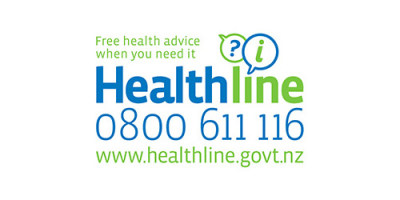Pēpi comes first for Naomi, smoke-free and loving it
A young woman’s strength to quit smoking for the sake of her unborn baby has been celebrated with a special gift and acknowledgment.
Naomi Te Kiri is counting days the days until her daughter is born, focussing on her mahi (work) and staying fit and positive.
This has been made easier thanks to Naomi’s outstanding effort to quit smoking, with the guidance of her quit coach Sonia Hepi-Treanor.
Sonia and Naomi came together through Pēpi First, a free programme that supports pregnant women to quit smoking and rewards them with grocery vouchers along the way.
“It was such a challenge to quit, the hardest thing I’ve ever done. Having a quit coach beside me was the 20% extra I needed alongside the 80% I put in myself,” Naomi says.
Sonia, Te Hā Pūkenga Manaaki of Te Piki Oranga Māori Wellness Services, says that the Pēpi First model of one-on-one support is key to success, especially for hapū mama.
“It’s all about building relationships and trust. We continue to support women for six weeks once pēpi is born but usually find that if a wahine is smoke-free in the second or third trimester she is usually smoke-free post-partum,” Sonia says.
The bond between Naomi and Sonia was evident when Debbie Fisher, Associate Director of Midwifery for Nelson Marlborough Health, met them to present a special gift to Naomi.
Debbie had been donated a beautiful flax basket designed for the burial of a pēpi’s whenua (placenta) and pito (umbilical cord) by Flax Farewells and was looking to gift it to a “wahine who has gone the extra mile to honour a pēpi who is growing inside.”
That remarkable wahine was Naomi, nominated by Sonia and acknowledged by Debbie: “It’s a huge amount of work to further protect pēpi through the Pēpi First programme. We would like to recognise your hard work and commitment you’ve made to your pēpi,” Debbie says.
Naomi, who has shared some of her story with readers in the Q&A below, has some advice for hapū mama who wants to quit smoking.
“Seek help like I did, you don’t have to do it hard on your own. If I can do it, you can. Stay positive, keep a routine and stay busy during the day.”
 From left, Kelly Atkinson (Smokefree Team Leader with the Nelson Marlborough Public Health Service), Sonia Hepi-Treanor (Quit Coach with Te Piki Oranga), Naomi Te Kiri (smokefree hapu mama) and Debbie Fisher (Associate Director or Midwifery, Nelson Marlborough Health).
From left, Kelly Atkinson (Smokefree Team Leader with the Nelson Marlborough Public Health Service), Sonia Hepi-Treanor (Quit Coach with Te Piki Oranga), Naomi Te Kiri (smokefree hapu mama) and Debbie Fisher (Associate Director or Midwifery, Nelson Marlborough Health).
A Q&A with Naomi te Kiri, a hapū mama who kicked cigarettes to the curb
What does quitting mean to you?
Quitting something negative is a positive thing. Quitting smoking means I am able to be healthier in my daily routine. Being able to breathe better while doing my exercises, having a clear head throughout the day and spending more time focusing on improving myself to be a better person each day.
Is this the first time you’ve quit or tried to quit?
Yes, this is the first time I’ve quit smoking. I’m so proud of myself for doing so. It feels good saying I’m smoke free!! Wahooooo!!
What are/were the tough bits?
The toughest thing I had encountered while giving up smoking cigarettes were remaining positive and strong to my goal. Being around people who smoke was so difficult as I would think to myself “I want one, just one won’t hurt today” but no, I would bring myself out of those thoughts and remain staunch to my goal.
What got you through the tough bits?
Having a routine. Every day I would make sure I am doing something positive and proactive to keep my mind busy. Being strong minded also got me through as I am able to turn around and say NO to people who would offer me a cigarette.
What do your family and friends think?
My whanau and friends are very supportive. They are happy that I have taken the steps to giving up smoking. They think it’s good for the health as this reduces the likes of heart attacks etc.
What was your strongest motivator to quit?
Having a baby on the way. This has been the biggest motivation as I don’t want her to think it’s ‘OK’ to smoke when she grows up. I want to show her other ways to cope with stress as there are other tools to use rather than smoking cigarettes. I want to create a positive and healthy environment for my baby and I.
When did you start smoking and why?
I started smoking when I was 18 years old, got a taste of the party life and started smoking socially. This eventually turned into a habit as I used this as a stress relief. I would make a coffee in the morning to go with a smoke or two, then start my day. Smoking cigarettes got me through my day and if I didn’t have any, my whole day would just not go to plan as I was consistently thinking of a smoke instead of focusing on what I had to do that day.
Have you noticed any other changes in your life since you’ve stopped smoking?
I am definitely a lot happier as it was been a big goal of mine to be smoke free. I have been able to save more money and go out and buy anything I want or need.
Has quitting inspired you to do any other things differently?
Yes definitely, as I know I am determined to do anything. Anything I put my mind to, I know I can achieve any goal I set.
What is your advice to people who want to quit smoking but think it might be too hard?
To anyone who really wants to quit smoking, seek the help. There are people out there who can coach you through your goal. Having support behind you is a good push to have but at the end of the day it’s up to YOU to put in the work to achieving your goals. Keep your mind busy throughout the day, stay positive and strong. Respect yourself first and always keep reminding yourself “I’ve got this”. If I can do it, anyone else can. I hope to see others do the same as they will enjoy the benefits of living a healthier lifestyle.
About the Pepi First programme
Deciding to stop smoking is one of the best things a woman can do for herself and her baby.
The Pepi First programme is free for all pregnant women in the Nelson Marlborough region. The benefits include:
- vouchers to reward progress (up to $600 worth)
- intensive one-on-one support with a quit coach
- community clinics, workplace support and home visits
- nicotine replacement therapy and information about other quit smoking products and services
- a complementary approach to the Quitline service that offers 24/7 support.
The parallel Stop Smoking Service is a free quit smoking programme for men (and women), so the tāne in the household can walk alongside their wahine and quit smoking at the same time.
In the past 12 months for the Stop Smoking and Pepi First services:
- 1044 people have referred themselves or been referred to the service
- 53% of 334 Māori referred to the service have successfully quit smoking
- 52% of 72 pregnant women referred to the service have successful quit smoking





